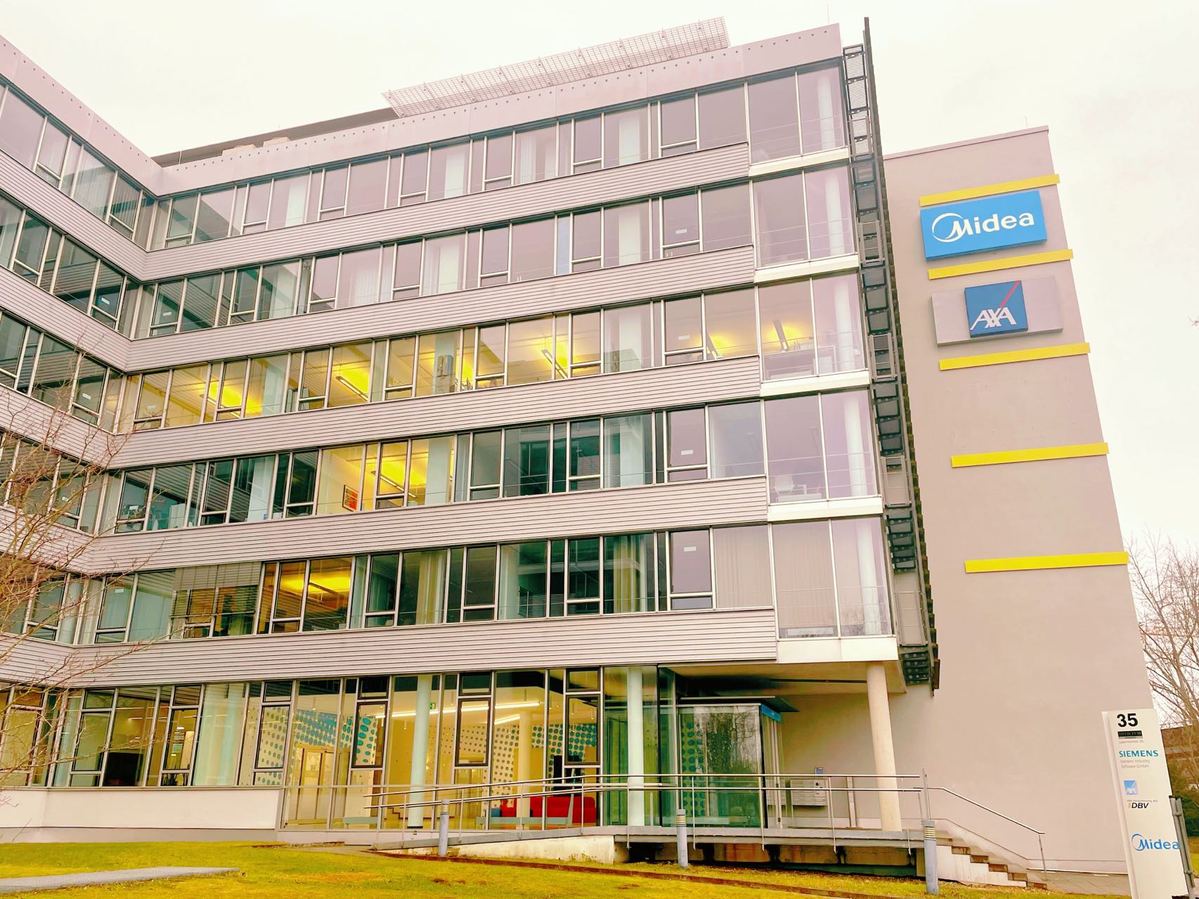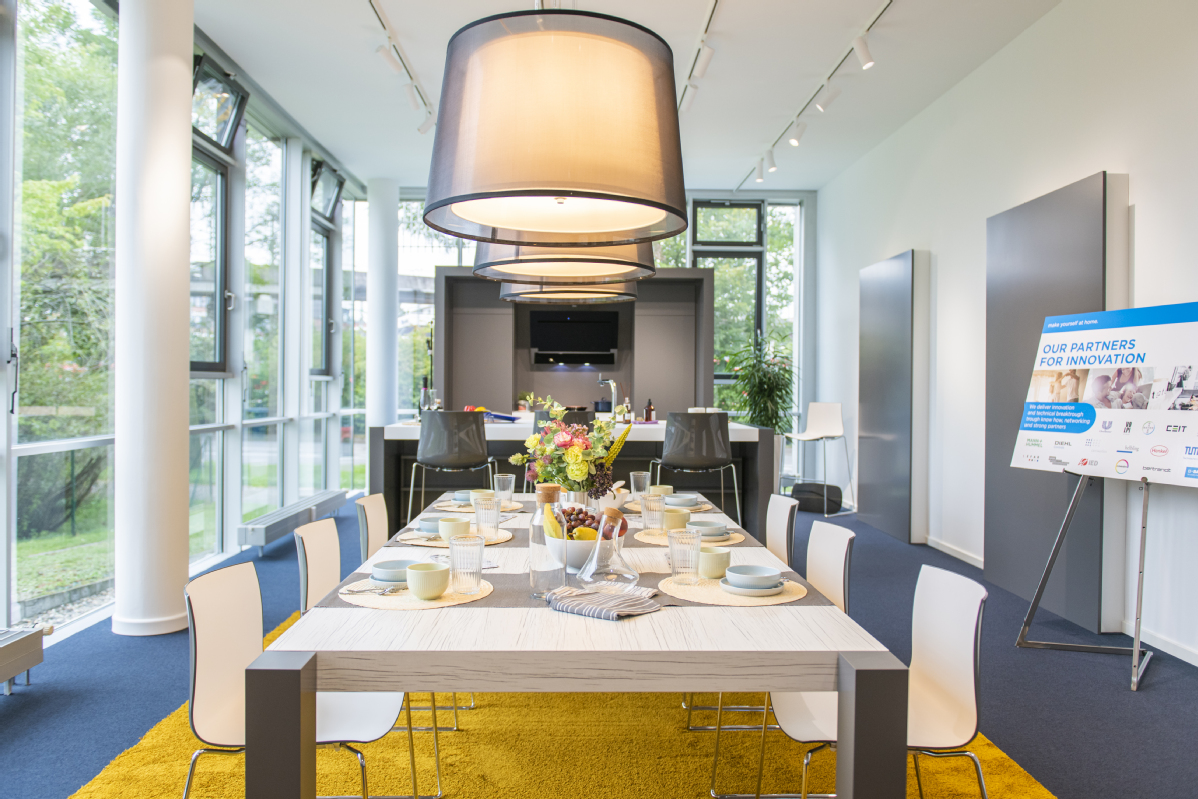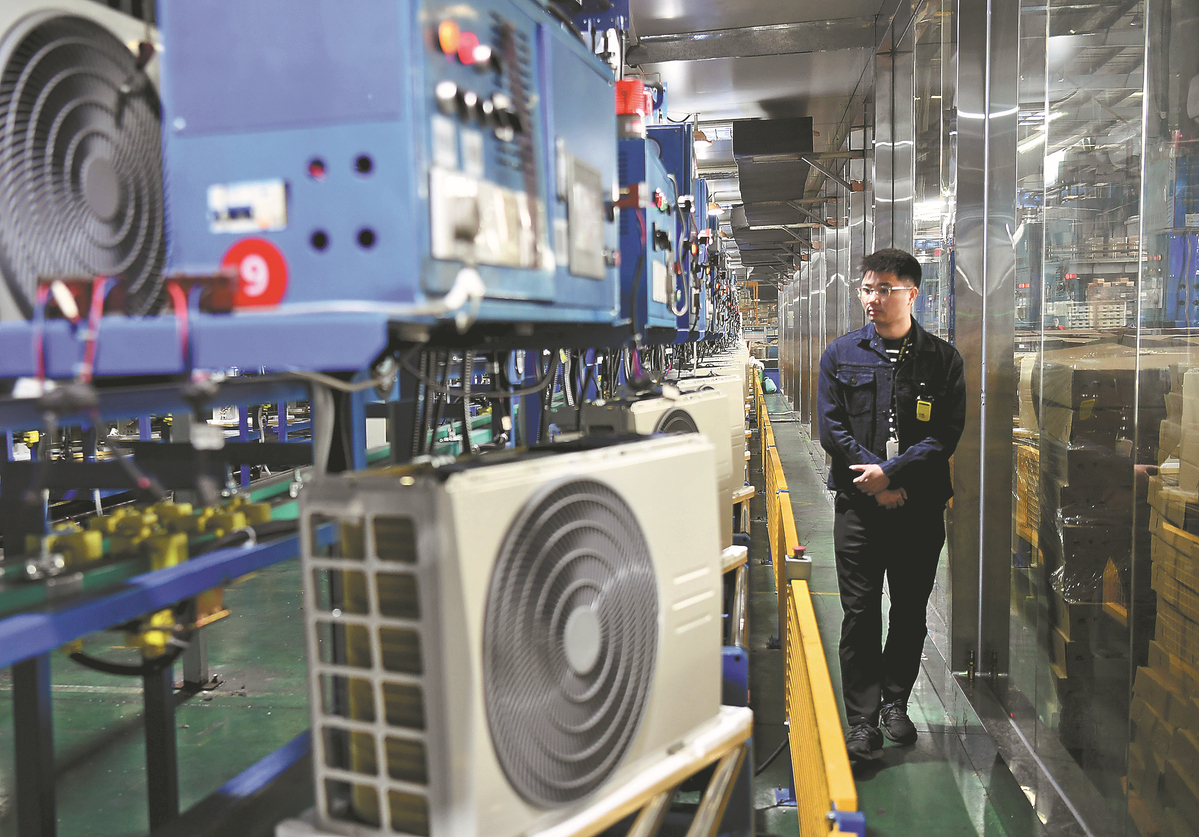From air conditioners to rice cookers, Midea is a household name in China. Now with a regional research center taking shape in Germany, the Chinese home appliance giant is studying the user habits of the Europeans and trying to make life easier for them.
When Dong Yunjun was studying in Germany more than a decade ago, the hot days in summer were short. There were only two weeks in July when people felt the heat, but they could easily bear through it.
“Gone were those good old days. In recent years, we have had about four to five weeks of sultry weather,” said Dong, technical leader for the residential air conditioning project at Midea”s research and development center in Germany.
As heatwaves swept Europe more frequently due to climate change, more Germans started to consider installing an air conditioner. But it’s extremely hard to get it installed in Germany and only about one in eight German households use air conditioning, according to a recent survey.
“People need to get all residents’ consent for drilling a hole in the wall of an apartment building, and they have to pay a lot of money and book in weeks’ advance for specialized workers, all of which hold back them from buying an air conditioner,” said Dong who joined Midea’s research arm in Germany in 2021, and has been working to design an easy-to-install air conditioner.

In the past two years, Dong and his team worked out a portable split air conditioner – weighing only 10 kilograms, its outdoor unit can be put under the window with a bracket and connected with the indoor unit by a flat tube through a narrow window gap. The whole installation involves no drilling and can be done by just one person.
After gathering feedback from hundreds of households across Europe, and on-site testing in 50 German households, Dong is confident that this air conditioner, called PortaSplit, will have a big sale when launched next year.
The portable air conditioner is just one of many home appliances that Midea’s R&D center in southwest Germany’s city of Stuttgart is working on. Founded in 2019, the center has now hired around 50 people from different European countries to develop and test products, ranging from washing machines and ovens to coffee makers and fridges, making them fit local user habits and preferences.
Improving design
Dressed in a white chef jacket, Eric Reeh is conspicuous among engineers, and his job, as a cooking expert, is to develop cuisines and give feedback to help engineers improve the design of Midea’s cooking products such as ovens and stoves.
When the first prototype arrives, Reeh will use it and make sure things like the evenness of heat distribution in an oven and temperature is right or the control panel of a microwave is intuitive for a chef.
“The two years of working in Midea is quite unique since I’ve worked my whole life in restaurants and hotels,” said Reeh, who has worked in Europe and the United States in the past. “It’s quite fun to work with engineers as we see the problem from a different perspective and learn from each other to work out a solution.”

Justine Kindler, senior performance engineer at the center, said the big advantage of having an in-house chef is he can be involved in product development from the beginning.
“We combine all the mechanical components with the chemistry of the food, and even the emotion … Because we want the oven we made to help customers cook a very traditional German dish that they had from their grandmother,” said Kindler.
Sun Ning, associate director of the German research and development center of Midea Europe, said Midea’s go-global strategy is not simply introducing Chinese products to overseas markets, but also providing solutions to customers “pain points” based on local market insights.
“We are a very international team as our experts are from more than ten countries, and they contribute their understanding of the market demand of their countries to our product development,” said Sun.
The center in Germany is one of the four major overseas R&D centers of Midea, the rest are located in Japan, Italy, and the US. The company hires talent from universities every year globally, including in Europe and northern America.
“Here in our center, we not only conduct testing in labs but also invite local customers to our experience room to cook and eat, so that we could get real-life observation of their habits,” Sun said. “We couldn’t get these kinds of insights if we were in China.”

